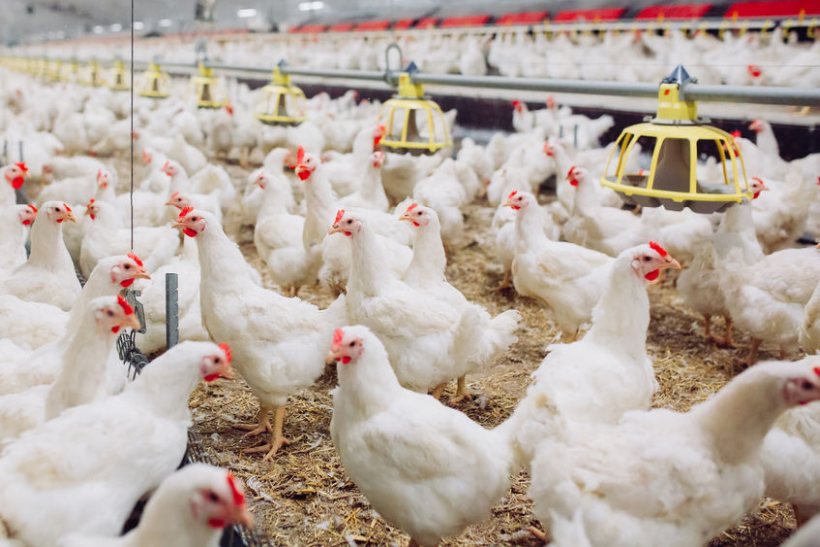
Countries in trade negotiations with the UK are 'seriously misusing' livestock antibiotics, raising fears that future deals will threaten British standards, a new report warns.
The US, Australia, New Zealand and Canada give antibiotics to livestock to make them grow faster, a practice which has been illegal across the EU since 2006.
Campaigners from the Alliance to Save our Antibiotics are calling for the government to take a strong stance against this overuse of farm antibiotics.
In 2022 the EU will ban the importation of meat and dairy produced in this way, but the UK government has not committed to implementing the ban, the group's report says.
The four countries also allow an antibiotic to be added to hormone growth-promoting implants given to cattle, to prevent infections at the implant site.
The most widely used antibiotic in hormone implants is tylosin, which is classified by the WHO as a high-priority critically important antibiotic in human medicine.
A closely related antibiotic is one of the few medicines that works to treat serious human Campylobacter infections.
Cóilín Nunan of the Alliance to Save Our Antibiotics, said new trade deals must not undermine UK standards by allowing 'cheap meat and dairy produced with antibiotic growth promoters into the UK'.
"It’s also particularly unacceptable that a high-priority critically important antibiotic is being used to control infections caused by hormone growth promotion,” he said.
Most antibiotics used for growth promotion in these four countries are not used in human medicine, the Alliance states.
But one growth promoter used in the US, bacitracin, is classified as medically important by the World Health Organization (WHO).
There is also scientific evidence that the use of bacitracin in livestock may increase levels of resistance to an antibiotic of last resort, called colistin, which is used to treat life-threatening infections in humans which do not respond other drugs.
The US also uses the antibiotic carbadox as a growth promoter in pigs, even though it is banned in Europe as it has been shown to be carcinogenic in some animals.
According to the Alliance's report, US authorities are currently considering banning carbadox, but the American pig industry is opposing the move.
Several other antibiotics used as growth promoters in the US, Australia and New Zealand are no longer permitted to be used in British or European livestock in any form.
The report shows that overall farm antibiotic use per animal is about five times higher in the US and Canada compared with the UK, with use in US cattle being about seven times higher.
Antibiotic use per animal in Australian poultry is over 16 times higher than in the UK while in Australian pigs it is nearly three times higher, although use in Australian cattle and sheep appears to be low.
It comes as British farmers and vets were applauded for their progress after figures showed a significant drop in use of highest priority critically important antibiotics (HP-CIAs).
Between 2018 and 2019 there was a 21% drop in of use of HP-CIAs in food-producing animals, the UK-Veterinary Antibiotic Resistance and Sales annual report said.
UK veterinary antibiotic use in 2019 was the second lowest since the start of regular reporting, and the UK has one of the lowest levels in Europe.
But Mr Nunan said the government should now commit to implementing the same antibiotic bans as the European Union.
“Farm antibiotic use is falling in Europe and in 2022 the EU will ban all preventative antibiotic mass medication in its livestock, which is a huge step forward.
"The UK government should commit to implementing the same ban, as relying on voluntary action is not a sustainable approach for the long term.
"It should also ensure that trade deals set high standards for imports to protect human health and avoid undercutting British standards,” he said.
